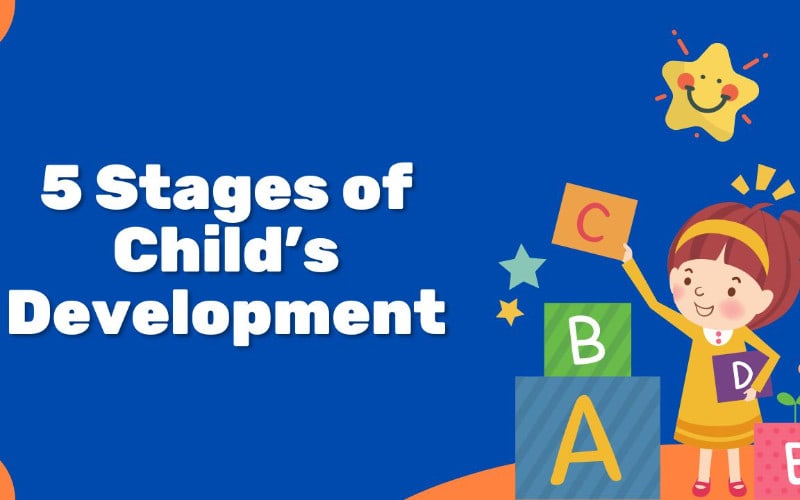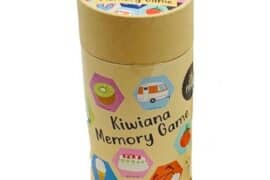The Enchanting Journey: Understanding Development Stages of Childhood
Hello, wonderful parents! Ready for an enchanting journey through your child’s growth and development stages? Buckle up because understanding these magical milestones will not only bring you closer to your little one but also arm you with the knowledge to support their flourishing journey into a happy, healthy individual!
Introduction to Child Development Stages
Child development is beautifully complex, and as your kiddo blossoms from a snuggly infant to a curious toddler, and then a spirited preschooler, each stage is studded with important milestones.
Baby Steps: The First 12 Months
Let’s start at the very beginning—a very good place to start! The first year of life is a whirlwind of growth and awe-inspiring development. In this period, your baby will hit milestones like their first smile, cooing, sitting up without support, and possibly taking their first wobbly steps!
Key Milestones to Watch For:
- By 2 months: Begin to smile at people, cooing and gurgling, can hold head up and begin to push up when lying on tummy.
- By 4 months: May start to mimic facial expressions, babbles and tries to mimic sounds, holds head steady without support, and can often roll over from tummy to back.
- By 6 months: Recognizes familiar faces, responds to other’s emotions, enjoys looking around at the world, sits without support, and begins to pass things from one hand to another.
- By 9 months: May be afraid of strangers, has favorite toys, understands “no,” stands holding on, and can pick up things between thumb and finger.
- By 12 months: Shy or anxious with strangers, cries when mom or dad leaves, repeats sounds or actions to get attention, starts to use things correctly (e.g., drinks from a cup), and can take a few steps without holding on.
Amazing Toddlers (1-3 years)
Now, as your child transforms into a terrific toddler, you’ll notice an explosion in their motor abilities, language skills, and independence. This is the stage where they’ll be exploring every nook and cranny of the world around them—hopefully not with a crayon on your walls!
Key Milestones to Watch For:
- By 15 months: Walks alone, drinks from a cup, says a few words, and likes to hand things to others as play.
- By 18 months: Begins to run, can help undress themselves, eats with a spoon, and says several single words.
- By 2 years: Begins to show more independence, starts to get excited about company, begins to sort shapes and colors, and follows simple instructions.
- By 3 years: Climbs well, shows a wide range of emotions, can work toys with buttons, levers, and moving parts, and can complete puzzles with three or four pieces.
Preschool Prowess (3-5 years)
Oh, the preschool years—full of imaginative play, social interactions, and a boundless desire to understand “why?” Your little explorer might be starting preschool and engaging with the outside world more independently during this period.
Key Milestones to Watch For:
- By 3 years: Can dress and undress themselves, plays make-believe with dolls, toys, and people, understands the concept of “mine” and “his/hers.”
- By 4 years: Starts to get along with people outside the family, can say first and last name, tells stories, and plays board or card games.
- By 5 years: Wants to please and be like friends, can sing a song or poem from memory, can draw a person with at least six body parts, and can print some letters or numbers.
Conclusion
As we take a pause in our stroll down development lane, remember that each child is unique and will reach these milestones at their own pace. The most joyous part of parenting is celebrated every tiny victory and being there to see your little one grow into their own person. So here’s to the giggles, the first words, the wobbly steps, and everything in between—with each new stage, your child is blooming into a marvelous little human right before your eyes!

Preparing for Your Child’s Developmental Milestones – A Parent’s Guide
Five Essential Things Parents Should Know
Before leaping into these beautiful phases of growth, there are five critical things every parent should arm themselves with to better prepare for and support their child’s developmental journey:
- Early Preparation is Key: Before your child reaches each developmental stage, learn about what to expect. This prepares you both emotionally and practically.
- Create a Nurturing Environment: Your home atmosphere plays a crucial role in your child’s development. Ensure it’s a safe, stimulating, and loving space.
- Patience is Paramount: Each child develops at their own pace. Be patient and celebrate the small steps as much as the milestones.
- Consistent Routines Matter: Establishing a daily routine creates stability that can help children feel secure and foster new skills.
- Social Interaction is Significant: Interacting with other children helps your little one develop socially and emotionally. Playdates, story times, and group activities are beneficial.
Understanding the Puzzle of Developmental Milestones
Each new skill a child achieves is like a piece of a puzzle that makes up who they are and who they will become. This guide offers a panoramic view of this exciting and evolving picture.
Baby Steps: The First 12 Months
The debut year of life is filled with rapid growth, marked by numerous milestones that lay the foundation for future learning and development.
Preparing for the First Year:
- Develop a routine that allows for plenty of rest – sleep is when much of a baby’s development takes place.
- Introduce a variety of stimuli, including colors, shapes, textures, and sounds to encourage sensory development.
- Spend lots of time interacting with your baby – talk, sing, and play simple games to promote bonding and early language skills.
- Encourage tummy time to help strengthen your baby’s neck, shoulders, and arm muscles, important for crawling and walking.
- Always keep an eye out for the next developmental milestones and be ready to support your child as they embark on each new challenge.
Toddler Triumphs: 1-3 years
During the toddler years, your child’s world expands. They learn to walk, talk, and begin to explore their independence.
Supporting Your Toddler’s Development:
- Create a safe environment for exploration – toddler-proofing your home allows your child to explore freely and safely.
- Introduce puzzles, stacking blocks, and art supplies to enhance fine motor skills and creative expression.
- Help develop language skills by reading together, encouraging your toddler to form sentences, and listening to their stories.
- Set aside time for active play – it’s crucial for a toddler’s development of gross motor skills and coordination.
- Introduce the concept of sharing and taking turns to develop social understanding and empathy.
Preschool Prowess: 3-5 years
This golden era is filled with great strides in social, cognitive, and emotional development as your child prepares for the school years ahead.
Enhancing Preschool Readiness:
- Encourage play-based learning to help them understand the world around them and develop problem-solving skills.
- Inspire a love for learning by making educational activities fun and engaging.
- Foster independence by providing opportunities for your child to complete simple tasks on their own.
- Support emotional regulation by talking about feelings and modeling appropriate ways to express them.
- Introduce basic concepts of numbers, letters, and time to provide a head start for kindergarten.
Navigating the Developmental Pathway
As your child grows, continue to be their guiding star. Remain informed, provide unconditional love and support, and celebrate each new accomplishment, no matter how small.
See more great Things to Do with Kids in New Zealand here. For more information see here
Disclaimer
The articles available via our website provide general information only and we strongly urge readers to exercise caution and conduct their own thorough research and fact-checking. The information presented should not be taken as absolute truth, and, to the maximum extent permitted by law, we will not be held liable for any inaccuracies or errors in the content. It is essential for individuals to independently verify and validate the information before making any decisions or taking any actions based on the articles.




